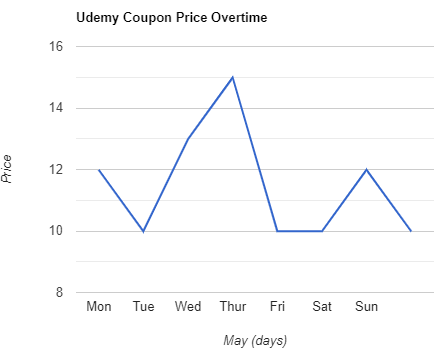Artificial Intelligence: Foundations of Computational Agents, second edition
Created by: David Poole
Produced in 2017
 Quality Score
Quality Score
Content Quality
/
Video Quality
/
Qualified Instructor
/
Course Pace
/
Course Depth & Coverage
/
Overall Score : 0 / 100
 Live Chat with CourseDuck's Co-Founder for Help
Live Chat with CourseDuck's Co-Founder for Help
Need help deciding on a artificial intelligence course? Or looking for more detail on David Poole's Artificial Intelligence: Foundations of Computational Agents, second edition? Feel free to chat below.
Join CourseDuck's Online Learning Discord Community
 Course Description
Course Description
Artificial Intelligence: Foundations of Computational Agents, second edition, Cambridge University Press 2017, is a book about the science of artificial intelligence (AI). It presents artificial intelligence as the study of the design of intelligent computational agents. The book is structured as a textbook, but it is accessible to a wide audience of professionals and researchers. In the last decades we have witnessed the emergence of artificial intelligence as a serious science and engineering discipline. This book provides an accessible synthesis of the field aimed at undergraduate and graduate students. It provides a coherent vision of the foundations of the field as it is today. It aims to provide that synthesis as an integrated science, in terms of a multi-dimensional design space that has been partially explored. As with any science worth its salt, artificial intelligence has a coherent, formal theory and a rambunctious experimental wing. The book balances theory and experiment, showing how to link them intimately together. It develops the science of AI together with its engineering applications.
 Instructor Details
Instructor Details

- 0.0 Rating
 0 Reviews
0 Reviews
David Poole
David Poole is a Professor in the Department of Computer Science, University of British Columbia and the director of the Laboratory for Computational Intelligence. He was the winner of the Canadian AI Association (CAIAC), 2013 Lifetime Achievement Award. He is a Fellow of the Association for the Advancement of Artificial Intelligence, and a fellow of CAIAC. He is former chair of the Association for Uncertainty in Artificial Intelligence. During the 2014-2015 academic year, he was a Leverhulme Trust visting professor at the University of Oxford.
 Students also recommend
Students also recommend

-
MIT OpenCourseWare - Artificial Intelligence (2010)
-
0.0 (0 Reviews)
-
 Provider: MIT OpenCourseWare
Provider: MIT OpenCourseWare Time: 18h 30m
Time: 18h 30m
Free

-
UC Berkeley CS188 Intro to AI (2012)
-
3.0 (1 Reviews)
-
 Provider: Berkeley AI Materials
Provider: Berkeley AI Materials Time: 30h 30m
Time: 30h 30m
Free

-
Artificial Intelligence: A Modern Approach (2009)
-
0.0 (0 Reviews)
-
 Provider: Pearson Education Limited
Provider: Pearson Education Limited
$159.99




